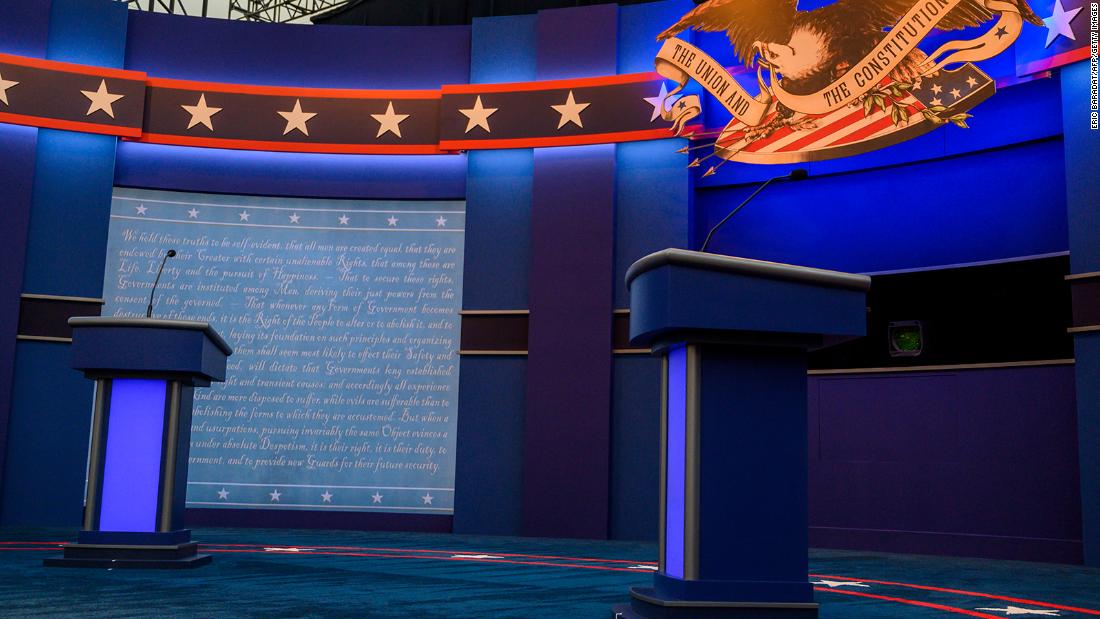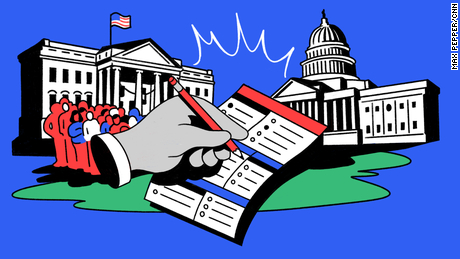Trump says he won’t participate in virtual debate
“I am not going to do a virtual debate,” Trump said on Fox Business. “I am not going to waste my time on a virtual debate.”
Biden’s campaign on Thursday swiftly agreed to the virtual format. But Trump’s comment throws the debate into question after the commission took the significant step to wholly remake the event. The move was seen as needed by members of the debate commission given the uncertainty around the President’s health.
Politically, if Trump skips the debate, he’ll be deprived of a platform that he needs at a time when his campaign is trailing in every national poll and in a number of key swing states. The first event was watched by more than 73 million people.
Frank Fahrenkopf, head of the debate commission, told CNN that the commission spoke with both campaigns “just before” they announced that the second debate would be held virtually.
“We did not consult with them,” he said, adding that their decision is “supported by the Cleveland Clinic,” the commission’s health advisers.
Trump complained during the interview with Fox that a virtual debate would mean he would have to “sit behind a computer” in a virtual debate and the moderator could “cut you off whenever they want.” But a virtual debate is not unprecedented — the third contest between Richard Nixon and John F. Kennedy in 1960 occurred with both candidates in different locations.
Bill Stepien, Trump’s campaign manager, accused the commission on Thursday of “unilaterally canceling an in-person debate” to help Biden and said the President will be holding a rally instead of attending the debate.
The commission said the debate moderator, Steve Scully, and the attendees who will ask Trump and Biden questions will appear from Miami, the original site of the debate.
“The second presidential debate will take the form of a town meeting, in which the candidates would participate from separate remote locations,” the commission said in a statement about the debate, which is scheduled to be held on October 15 in a town hall format.
Fahrenkopf noted that it was fully within the President’s right to decline to debate.
“There is no law requiring any presidential candidate to debate. In fact, in 1980, Jimmy Carter, president of the United States, refused to participate in the first debate, but he did participate in the second debate,” said Fahrenkopf. “So it is up to every candidate to decide whether they want to debate or not.”
“The Commission, including me, is certainly open to virtual operations of the debates, without question,” said a commission member, who asked for anonymity to speak openly about forthcoming deliberations.
Even before the vice presidential debate, however, members of the commission have been consumed by what to do about the upcoming presidential contests and said that whether the event happened in person or virtually centered on one thing: Trump’s well-being.
“It is all going to depend on the President’s health,” a commission member said before the vice presidential debate. “We have to plan like it is going to happen. … If he is quarantined in the White House, they have a way to bring him” live to the hall.
This story has been updated with additional reporting and reaction.
![]()




